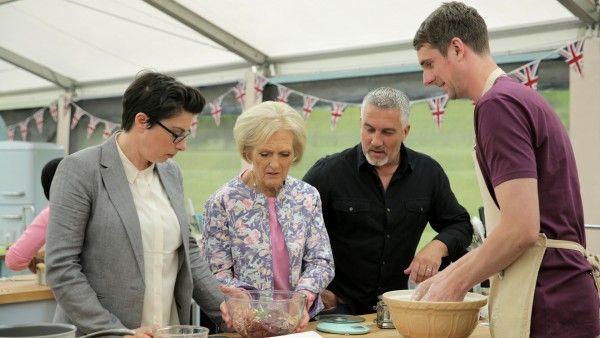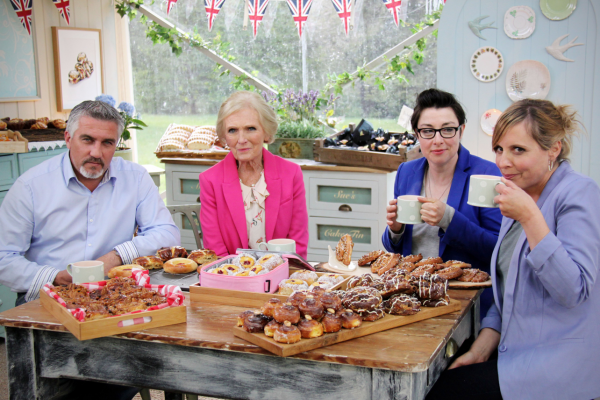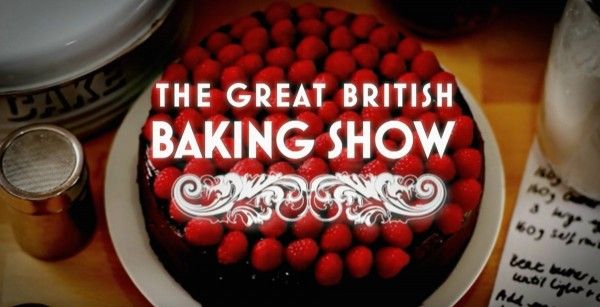I’m not a big fan of reality shows. I find that the conflicts feel manufactured, the personalities are the bottom of the barrel, and everything is built on pitting people against each other. It’s not a fun way for me to unwind. However, this is generally how U.S. reality TV exists. Strangely enough, that’s not quite how it works with U.K. reality television, and it’s definitely not how it functions with Britain’s celebrated export, The Great British Bake-Off, or as its known here in the U.S., The Great British Baking Show.
“Yeah, I’ve seen cooking shows,” you may scoff. But Baking Show is a far cry from shows like Top Chef or Hell’s Kitchen. For those who are unfamiliar with the show, 12 amateur bakers across Britain compete in various challenges, with each week revolving around a different baked good like cakes or biscuits. There are three challenges each week, the Signature Challenge, which allows the bakers to show off their skills; the Technical Challenge, where the bakers are given the barest outline of a recipe in order to test their knowledge; and the Showstopper Challenge, where the bakers go all out to try and impress the judges with an impressive feat of flavor and design. Each week, one baker is awarded “Star Baker” if they were the best, and one baker is sent home. At the end of the competition, the winner receives a laser-engraved cake plate.
What sets The Great British Baking Show apart from standard reality competitions is that it’s nice. There’s no asshole baker who’s out to sabotage the competition or your standard, “I’m not here to make friends,” contestant. Perhaps part of it is because everyone is an amateur and the stakes are so low (again, the prize is a cake plate). With the help of funny, lovable hosts Mel Giedroyc and Sue Perkins, the tension is always real, but there’s never any enmity. Contestants try to help each other when possible, and there’s a lot of love and admiration for each other’s work.
If all reality TV were like The Great British Baking Show, I would watch more reality TV. It’s warm, friendly, comforting, and it allows you to appreciate the work of regular, hard-working people divorced from ego and self-doubt. It’s rare for me to ever root against a contestant on Baking Show, and while favorites inevitably emerge, I remain in awe not just of the baked goods the contestants create, but by the attitude they bring to their work. We all know the stress of trying to get something just right, and it’s easy to connect with everyone on the show.
To me, this is a great way to spend free time. Intense, dramatic shows have their place, but there's also something to be said for a nice, relaxing show that ditches "big" personalities in favor of good-hearted people working hard to create. While everything on the surface may scream "low-stakes", everything on Baking Show is far more relatable and inviting than watching people scream at each other or stab fellow contestants in the back. For some people, watching that kind of behavior may be enjoyable escapism, but I find it's a far more pleasant experience to watch people be kind, creative, and supportive.
Some people may not go for Baking Show. If you like your reality TV filled with people at each other’s throats, Baking Show isn’t for you. It’s a show where the meanest person is judge Paul Hollywood, and even he isn’t at the level of someone like Simon Cowell. He’s tough, he can be a bit of a jerk sometimes, but you never outright loathe him or relish a snide comment. The ethos of Baking Show is positivity, and it’s a credit to the show’s producers that they can wring every ounce of drama out of watching bread rise without resorting to turning people against each other. In the age of Peak TV, The Great British Baking Show is the nicest show around.
The Great British Baking Show is available to watch on Netflix.




